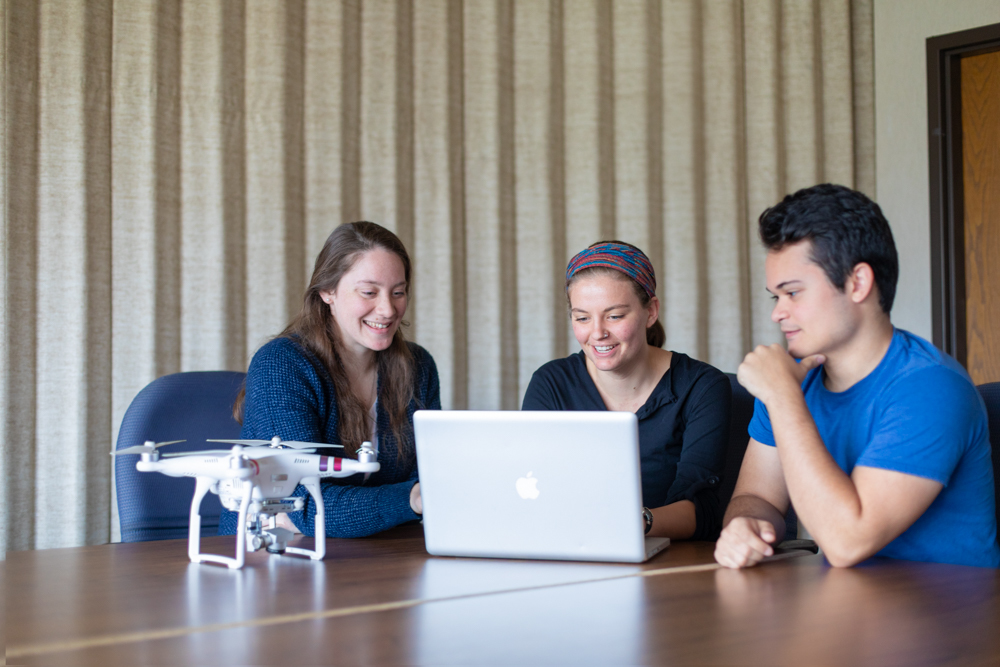UPDATE 4/23/2019: Team Boom! Cameras, comprised of Alcinda Brubaker, Chris Simmons and Emily Hostetler, closed out the semester simulation with top scores as well, including a #3 global ranking in both earnings per share and best stock price for the week of April 15-21.
Three Eastern Mennonite University students eyeing future careers in aviation and video game development, missions and preschool entrepreneurship are learning business savvy through an online business strategy simulation in which their company was ranked among the “best-performing companies worldwide.”
The GLO-BUS simulation team, in Professor Roxy Kioko’s “Principles of Management” class, includes Lydia Musselman, Lydia Chappell Deckert and Paul Johnson. The trio tied in 37th place worldwide for the week of March 11-17 based on the overall score of their company “Jubilee Electronics.”
GLO-BUS, said Kioko, helps students learn the four functions of management: planning, organizing, leading and control. Marketed by McGraw-Hill Education, it has been used by nearly 32,000 students in 29 different countries in the last year.
A “hands-on exercise” that reflects “real-world competitive conditions,” it gives students an opportunity to “run companies that are in a neck-and-neck race for global market leadership” selling wearable video cameras and camera-equipped drones in four geographic regions, its website says.
In the simulation, Kioko said, the students learn how to staff a business and adequately compensate people; how to make team decisions including about ethical practices, such as how much to spend on sustainability efforts; and how to interpret and improve their financial performance each round.
“This project has helped me think critically and strategically about the business world, and to understand the different strategies and components involved with expanding and growing a company,” said Chappell Deckert, an English major with a non-profit management minor who plans to start a preschool and early learning program. “I’m sure a lot of that will come in handy while attempting to start my own school.”
“It challenges you to make decisions in real time as you would at an organization,” said Musselman, a psychology major with minors in Bible and religion, leadership, and nonprofit management who plans to serve the local community or internationally.
Johnson, a digital media major who hopes to become a pilot and work in digital media – and who with a friend has already started a company, said the simulation reinforces ethical practices. “We focus on treating our employees well, and keeping our prices affordable while still offering a valuable product,” he said of the GLO-BUS team, adding that “to the best of your ability” is “always the right way to go.”
